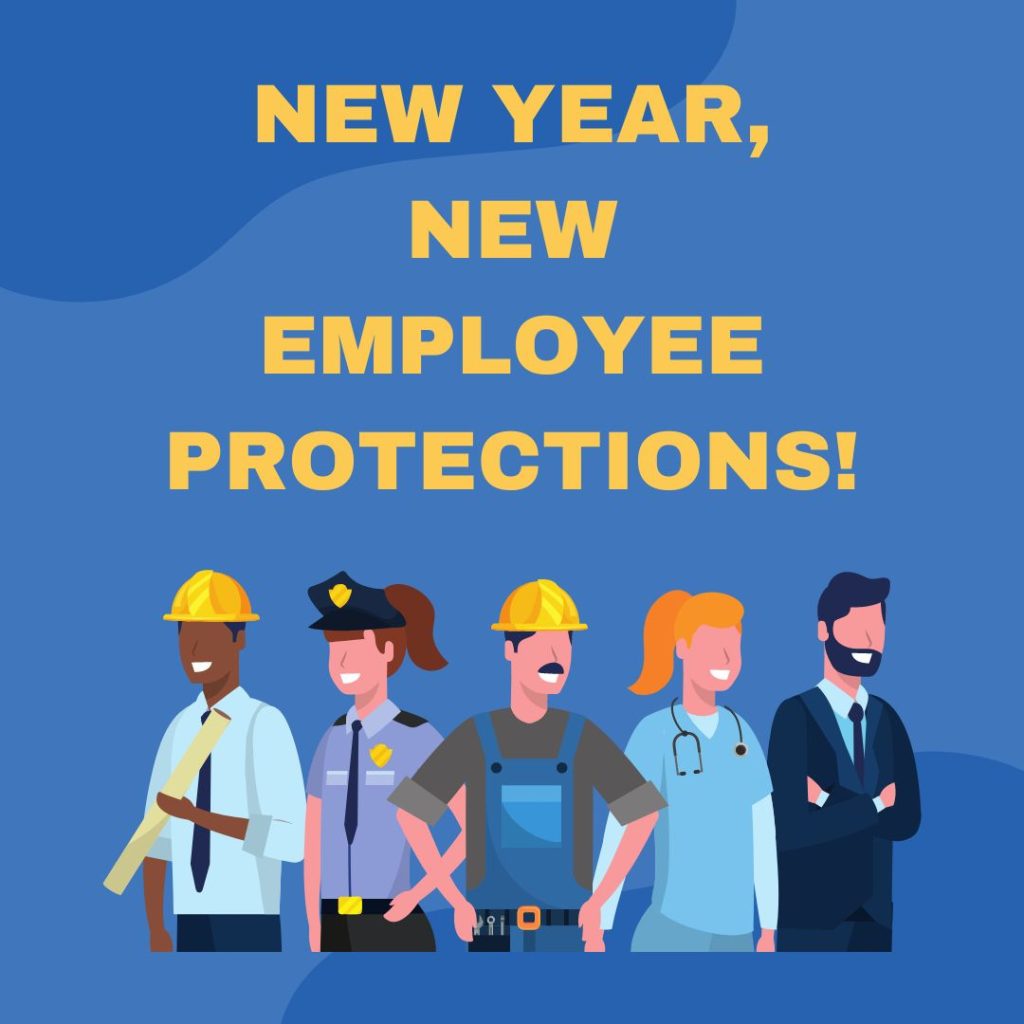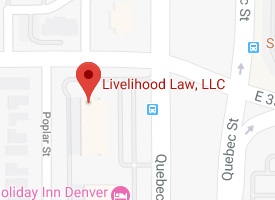
New Year, New Employee Protections
Colorado’s New Year’s resolution is to provide more protections for employees. In 2024, Colorado has rolled out new employee benefits programs, laws, and rules that further protect employees’ rights. Below is a summary of what 2024 brings to Colorado’s employment law landscape.
FAMLI
Colorado’s Family and Medical Leave Insurance Program (“FAMLI”) started paying benefits to eligible employees on January 1, 2024. FAMLI provides most Coloradans 12 weeks of paid leave per year. Eligible employees that experience pregnancy or childbirth complications are entitled to an additional four weeks of leave.
Employees may use their FAMLI leave all at once, intermittently, or to create a reduced work schedule. Eligible employees may take FAMLI leave in addition to FMLA leave and Colorado’s Health Families and Workplaces Act (“HFWA”) leave. FAMLI benefits are paid on abased of the employee’s average weekly wage up to a maximum of $1,100 per week.
| Weekly Wage | Weekly Benefit | Maximum Annual Benefit | Percent of Weekly Wage |
| $500 | $450 | $5,400 | 90% |
| $1,000 | $784 | $9,408 | 78% |
| $1,500 | $1,034 | $12,408 | 69% |
| $2,000 | $1,100 | $13,200 | 55% |
| $3,000 | $1,100 | $13,200 | 37% |
Employees may use FAMLI leave to:
- Care for a new child, including adopted and fostered children
- Care for themselves, if they have a serious health condition
- Care for a family member’s serious health condition
- Make arrangements for a family member’s military deployment
- Address the immediate safety needs and impact of domestic violence and/or sexual assault
Employees who take FAMLI leave to care for a new child may take such leave within 12 months after that child’s arrival. Parents who welcomed a new child in 2023 may be eligible for up to 12 weeks of paid leave in 2024. Read more about using FAMLI leave for a child welcomed in 2023 here.
Most Colorado employees are eligible for FAMLI benefits and, if they have worked at their employer for at least 180 days, their jobs are protected while they are on leave. Benefits are available, but slightly different, for employees of local government who opted out of the program, and for self-employed Coloradans.
To apply for FAMLI benefits, employees must submit a claim through the My FAMLI+ portal within 30 days before or after their leave of absence.
Equal Pay for Equal Work Act, Part 2
Colorado’s Equal Pay for Equal Work Act (“CEPEWA”) is making a huge difference for employees, and it just got even better. The pay transparency amendments to CEPEWA that went into effect on January 1, 2024, require transparency in pay and job opportunities, which allows more employees to identify inequitable treatment. Under the law, employers must include certain information in job postings, must announce all job opportunities to all employees, and must disclose information about the applicant hired for each job.
All job postings, whether internal or external, must include information about compensation, benefits, and how and when to apply, including application deadlines. Employers must announce all job opportunities to all employees; they cannot limit the announcement to employees that may be qualified for that position. Additionally, employers must disclose career advancement opportunities to eligible employees.
Once a candidate is selected, the employer must announce who was selected, their former job title, their new job title, and how other employees can express interest in similar positions going forward. This “post-selection notice” must be made within 30 days and must be sent to employees who will work with the newly hired employee regularly.
Employees who believe an employer has violated EPEWA may file a complaint with the Colorado Department of Labor and Employment (“CDLE”) within one year of the violation. After investigation, CDLE can order remedies such as requiring the employer to come into compliance, remedy violations, and pay fines ranging from $500 to $10,000 per violation.
Updated Wage & Hour Rules
As of January 1, 2024, the minimum wage in Colorado is $14.42 per hour for non-tipped employees and $11.40 per hour for tipped employees. In Denver, the minimum wage is higher at $18.29 per hour for non-tipped workers and $15.27 per hour for tipped workers.
The updated Colorado Overtime and Minimum Pay Standards Order (COMPS Order) #39 went into effect on January 1, 2024. COMPS Order #39 provides a new definition for “time worked.” Under previous orders, employers had to pay employees for pre- and post-shift work-related tasks that took more than one minute. Now, employers must pay employees for all time spent on activities that benefit the employer or that the employer permitted, including pre- and post-shift tasks that take less than one minute.
COMPS Order #39 also provides additional guidance for tip sharing. In sum, employers may require tipped employees to share tips with other customer-facing employees if both employees and customers are notified in advance that tips will be shared. If the employer requires tipped employees to share tips with non-tipped employees, the employer cannot claim a tip credit and must pay all employees the full minimum wage (i.e., $14.42 per hour in Colorado or $18.29 per hour in Denver). Lastly, employers may never require employees to share tips with managers.
JAFA
The Job Application Fairness Act (“JAFA”) goes into effect on July 1, 2024. JAFA prevents employers from asking age-related information on employment applications. This means that employers cannot ask prospective employees to disclose their age, date of birth, dates of schooling or graduation, or other age-related information. Employers must also inform job applicants that they may redact age-related information on their application materials, such as dates on a school transcript.
When the job requires that the employee be a certain age—for example, a restaurant worker must be at least 18 years old to serve alcohol—the employer may require applicants to verify that they meet the job’s age requirements. However, the employer may not require the applicant to provide unredacted documentation of their exact age until after they have made the applicant a job offer.
Individuals who believe that an employer has violated JAFA may file a complaint with CDLE within one year of the violation. CDLE will investigate the complaint and may order the employer to comply with JAFA within 15 days and pay a penalty between $1,000 and $2,500.
PROPWA
The Protections of Public Workers Act (“PROPWA”) goes into effect on July 1, 2024. The Act protects government employees’ ability to engage in “expression or advocacy, on either workplace or public issues.” PROPWA prohibits employers from interfering with such expression and from discriminating or retaliating against employees who exercise these rights.
An employee that believes their employer violated PROPWA may file a complaint against their employer within six months of the violation. CDLE may investigate the complaint and can require the employer to comply with PROPWA, pay fines, or “make the employee whole,” such as by reinstating an employee that was wrongfully terminated with pay.
How Livelihood Law Can Help
Navigating the ins and outs of these new laws can be challenging without legal counsel. Livelihood Law has extensive experience representing clients that have been denied benefits and wages, suffered harassment, or been discriminated against at work. We are here to make sure that your rights are protected. Contact us today to find out what your options are and to protect your rights.


